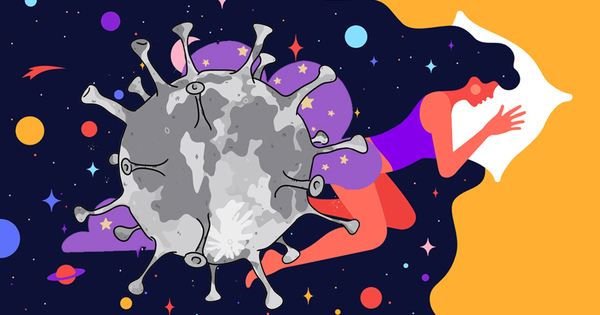Vivid Dreams in Quarantine

Source: SAYS.com
May 14, 2020
If you’ve noticed that you have been remembering more of your dreams vividly, you’re not alone. COVID-19 forced the entire world to enter an unfamiliar, uncomfortable state, but we didn’t know how significant the effects would be. Along with other strange behavior that is associated with extreme boredom, many people have reported remembering more of their nighttime dreams now that we have entered quarantine than they had been when life was normal.
Many factors could be responsible for this strange phenomenon. For starters, being in quarantine has allowed a lot of people to catch up on their sleep. Now that people don’t have to get up at 7 AM for school or work, their bodies have enough time to go through longer REM (rapid eye movement) cycles. The longer the REM cycles, the longer the dreams. According to the Boston Globe, the body undergoes several REM periods every night, and each period is longer than the other. Since people are now getting longer periods of sleep each night, their REM cycles have been increasing in length, which explains why the dreams are longer and more in-depth.
There is no doubt that the pandemic flipped everyone’s lives upside down. Dreams reflect reality, and they might just be the brain’s coping mechanism in response to trauma. Stress levels have increased because of the uncertainty and fear that the virus imposed upon the entire human population. Studies have shown that people hadhaving strange dreams in traumatic times such as 9/11 and World War II. The heightened stress and the overall changes in lifestyle give the mind much more to process at night.
Dreams are one of the most mysterious and extraordinary wonders in psychology. They are unique to every person, making it difficult to share. TheyIt can also be a very lonely and frightening experiences, especially when the scenarios reflect a disturbing reality. Some prevalent themes among people in quarantine include insects, disease, and protection, which that often gravitate around the idea of a virus. Did the coronavirus really get that deep into our brains?
















































































































































